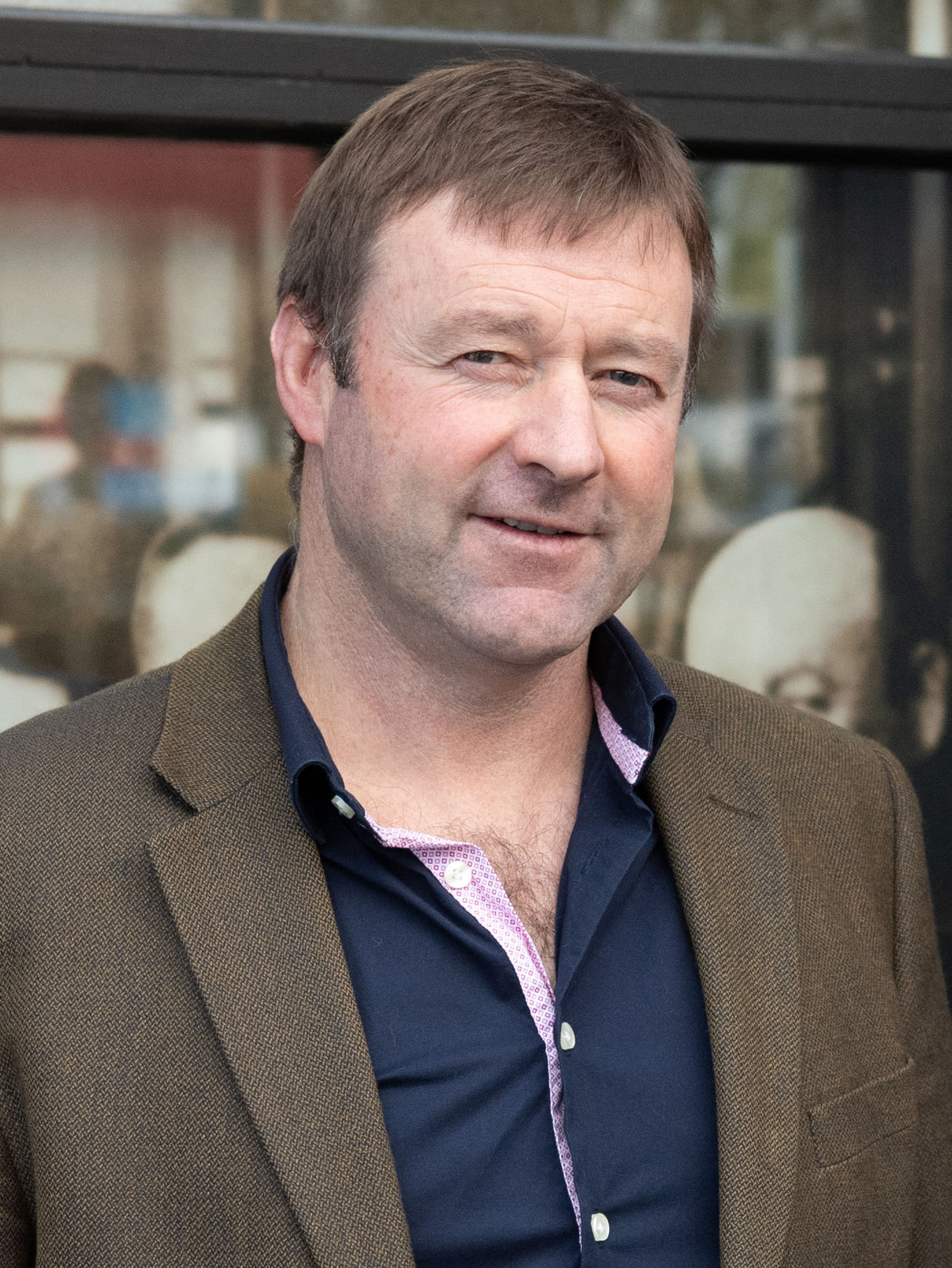Intelligence Report on Mark Patterson

Executive Summary
Mark William James Patterson, a New Zealand First Member of Parliament, has emerged as a prominent advocate for rural communities and the agricultural sector, particularly the wool industry. Born in 1970 in Canterbury, New Zealand, Patterson’s deep-rooted farming background informs his political agenda. Currently serving as Minister for Rural Communities and Associate Minister for Agriculture, he has championed initiatives to revitalize the wool sector and support rural economies. However, his career is marred by controversies, including a conflict of interest related to Emissions Trading Scheme (ETS) decisions and issues with staff treatment in his office. His vocal criticism of foreign land ownership, particularly targeting Chinese buyers, has also sparked accusations of xenophobia. This report provides a detailed profile of Patterson, examining his background, political career, achievements, controversies, and speculative insights into his motivations.
Personal Background
- Early Life and Education: Born in 1970 in Canterbury, Patterson was raised on a family farm in Southbridge alongside three sisters. His ancestors arrived in New Zealand in the 1860s, establishing a farming legacy that continues to influence his identity. He attended Ellesmere College, where future National Party MP Gerry Brownlee was his woodwork teacher, providing an early connection to New Zealand’s political landscape.
- Family and Farming: In 2004, Patterson moved to Otago, where he worked on a sheep and cattle farm near Oamaru. In 2008, he and his wife, Jude Howell Patterson, purchased a 500-hectare sheep farm in Lawrence, Otago. The couple has two daughters. Patterson is a director and 50% shareholder of Ngapara Farms Limited, a company engaged in sheep and beef farming as well as forestry, which is registered in the New Zealand Emissions Trading Scheme (ETS) since 2021.
Political Career
- Early Political Involvement: Patterson initially aligned with the National Party, contesting the nomination for the Clutha-Southland electorate in 2014 but losing to Todd Barclay. Disillusioned with the National Party’s direction, he joined New Zealand First in 2015, inspired by Winston Peters’ victory in the Northland by-election and the party’s renewed focus on rural issues.
- Parliamentary Terms:
- 2017–2020: Elected to Parliament in 2017 via the New Zealand First party list, Patterson was the only South Island-based MP in his party. He served on the Education and Workforce and Primary Production committees and was the party’s spokesperson for agriculture, primary industries, biosecurity, Christchurch earthquake recovery, Crown minerals, customs, food safety, intellectual property, and land information.
- 2020 Election Loss: In the 2020 general election, Patterson ran for the Taieri electorate but finished fourth, and New Zealand First’s vote share dropped to 2.7%, below the 5% threshold, resulting in the loss of his seat.
- 2023 Return: Ranked fourth on the New Zealand First party list for the 2023 election, Patterson again contested Taieri, finishing fourth with 3,069 votes. The party secured 6.08% of the vote, allowing him to re-enter Parliament as a list MP.
- Ministerial Roles: Following the formation of the National-led coalition government in November 2023, Patterson was appointed Minister for Rural Communities and Associate Minister for Agriculture. In January 2024, he also became Associate Minister for Regional Development. His portfolios reflect his commitment to rural and agricultural issues, with a particular emphasis on the wool industry.
Key Initiatives and Achievements
Patterson has leveraged his ministerial roles to advocate for rural communities and the agricultural sector, with a notable focus on revitalizing the wool industry. His key initiatives include:
Wool Industry Revitalization:
- Woolshed Roadshow: In 2024, Patterson launched the government’s “woolshed roadshow” to promote New Zealand wool, emphasizing its sustainability and quality (Beehive).
- Government Building Directive: In 2025, he announced a directive requiring Crown agency buildings costing over $9 million and refurbishments over $100,000 to use New Zealand wool products, reversing earlier cost-based decisions to favor synthetic fibers (Newstalk ZB).
- Napier Wool Processing Facility: Patterson formally reopened the world’s largest wool scouring facility in Awatoto, Napier, in 2024, following a $50 million rebuild. This facility, which processes over half of New Zealand’s wool, is expected to enhance the sector’s economic contributions (VOXY).
- International Advocacy: He spoke at the International Wool Textile Organisation Congress in Adelaide in 2024, promoting New Zealand’s wool exports, which reached $400 million in the year to June 2023, with ambitions to double export values within a decade (Beehive).
- Quality Concerns: Patterson has highlighted the decline in wool quality as a challenge, urging farmers to prioritize breeding for wool attributes to meet exporter and manufacturer needs (Rural News Group).
Rural Community Support:
- In a December 2023 parliamentary speech, Patterson emphasized the economic importance of agriculture, contributing $57–58 billion in foreign exchange and employing 350,000 people. He advocated for improved rural infrastructure, including healthcare, education, roading, connectivity, and police resources (New Zealand Parliament).
- He expressed concern over the proposed closure of the Alliance Group’s Smithfield meatworks in Timaru, noting its impact on local employment and calling for government action to address industry challenges (NZ Herald).
Community Involvement: Outside Parliament, Patterson chaired Otago Federated Farmers from 2021 to 2023, led the Lawrence to Waihola Cycle Trail extension project, and served as Deputy Chair of the New Zealand Century Farms committee. He is also active in the Otago Regional Skills Leadership Group (NZ First).
Controversies and Criticisms
Patterson’s political career has faced significant scrutiny, with several controversies raising questions about his transparency and office management:
Emissions Trading Scheme (ETS) Conflict of Interest:
- Issue: Patterson, as a director and 50% shareholder of Ngapara Farms Limited, a company involved in sheep, beef, and forestry with an ETS registration since 2021, participated in Cabinet decisions on ETS settings in May 2024. These decisions could influence carbon credit values, potentially benefiting his company (Newsroom).
- Response: He disclosed the conflict in August 2024 and stood aside from further ETS decisions, but critics, including Labour’s Deborah Russell, called for Prime Minister Christopher Luxon to intervene, citing a lack of transparency. The Integrity Institute’s Jem Traylen criticized Patterson’s initial participation as obfuscation (Newsroom).
- Implications: This incident raises concerns about whether Patterson’s policy positions are influenced by personal financial interests, particularly given his advocacy for agricultural policies that intersect with environmental regulations.
Staff Treatment in Ministerial Office:
- Issue: In February 2025, the Ministry for Primary Industries (MPI) ceased seconding staff to Patterson’s office following formal complaints about staff treatment. A whistleblower reported concerns to 1News, and multiple staff members left the office, with no MPI staff remaining (RNZ).
- Response: Patterson was not directly implicated, and he involved Ministerial Services upon learning of the complaints. Speculation suggests tensions between electorate staff and Wellington-based staff may have contributed (The Daily Blog).
- Implications: The withdrawal of MPI staff could hinder Patterson’s ability to make informed decisions, raising questions about his office management and leadership.
Foreign Land Ownership Criticism:
- Issue: Patterson has been vocal about restricting foreign ownership of New Zealand land, notably criticizing the sale of Jericho Station farm to Chinese buyers in 2017. He advocated for citizenship requirements for land purchases, a stance some characterized as “anti-Chinese” (Wikipedia).
- Context: His views align with New Zealand First’s nationalist policies but have drawn accusations of xenophobia, particularly in the context of debates over foreign investment in New Zealand’s agricultural sector.
- Implications: This stance may resonate with voters concerned about foreign influence but risks alienating those who see it as discriminatory or economically restrictive.
Political Rhetoric:
- In 2020, Patterson warned voters about the “extremes” of a potential Labour/Greens government, aligning with New Zealand First’s adversarial campaign strategy. This rhetoric contributed to perceptions of divisiveness, which some analysts believe cost the party votes in the 2020 election (NZ Herald).
Political Positions and Advocacy
Patterson’s political positions reflect his rural and agricultural roots, often aligning with New Zealand First’s populist and nationalist platform:
- Criticism of Labour’s Policies: Patterson returned to Parliament in 2023, motivated by opposition to the Labour Government’s environmental and agricultural policies, which he claimed sacrificed 21% of the sheep and beef sector for climate goals. He has criticized Labour’s economic management and perceived authoritarianism (New Zealand Parliament).
- Agricultural Advocacy: He emphasizes agriculture’s role as a cornerstone of New Zealand’s economy, contributing $57–58 billion in exports and employing 350,000 people. Patterson advocates for policies that enhance farmer profitability and sustainability, particularly in the wool sector (YouTube).
- Rural Community Needs: He has called for increased investment in rural healthcare, education, roading, connectivity, and policing to support the 700,000 New Zealanders living in rural areas, addressing a 20-year low in rural confidence (New Zealand Parliament).
Speculative Insights
Given the user’s request for speculative analysis, several points warrant consideration, though these are based on available evidence and should be treated cautiously:
- Influence of Personal Interests: Patterson’s advocacy for the wool industry and rural communities may be driven by his personal stake as a farmer and director of Ngapara Farms Limited. His focus on wool could reflect a strategic alignment of his political and financial interests, potentially prioritizing policies that benefit his sector over broader environmental or economic considerations.
- Conflict of Interest Implications: The ETS controversy suggests a possible lack of initial diligence in managing conflicts, raising questions about whether Patterson’s policy decisions are fully impartial. His delay in disclosing the conflict until August 2024, despite participating in ETS decisions earlier, could indicate either oversight or an attempt to influence outcomes favorable to his business interests.
- Nationalist Rhetoric: Patterson’s criticism of foreign land ownership, particularly targeting Chinese buyers, aligns with New Zealand First’s nationalist agenda. While this may appeal to voters concerned about foreign influence, it risks perpetuating xenophobic sentiments, potentially alienating international investors and complicating New Zealand’s trade relationships.
- Office Management: The MPI staff withdrawal suggests underlying issues in Patterson’s office environment, possibly due to leadership style or staff dynamics. While he is not directly implicated, the incident could reflect poorly on his ability to foster a cohesive team, which is critical for effective ministerial performance.
Critical Analysis
Patterson’s dedication to rural communities and the wool industry is commendable, particularly given the economic challenges facing New Zealand’s agricultural sector. His initiatives, such as the wool directive and the Napier facility reopening, demonstrate a proactive approach to addressing long-standing issues like low wool prices. However, his controversies undermine his credibility. The ETS conflict of interest is particularly concerning, as it suggests a potential breach of ministerial ethics, even if unintentional. His refusal to answer questions about the conflict, citing Cabinet confidentiality, fuels perceptions of opacity. Similarly, the staff treatment issue, while not directly his fault, points to management shortcomings that could hinder his effectiveness as a minister.
Patterson’s stance on foreign ownership, while rooted in a desire to protect New Zealand’s agricultural assets, risks being interpreted as discriminatory, particularly in a globalized economy where foreign investment is significant. His alignment with New Zealand First’s populist rhetoric may resonate with rural voters but could alienate urban and progressive constituencies, limiting his broader political appeal.
Conclusion
Mark Patterson is a complex figure whose deep ties to New Zealand’s agricultural sector have shaped his political career. His achievements in promoting the wool industry and advocating for rural communities highlight his commitment to a vital economic sector. However, his controversies, particularly the ETS conflict and office management issues, raise serious questions about his transparency and leadership. While his farming background lends authenticity to his advocacy, it also introduces potential conflicts that require careful management. As a minister, Patterson must navigate these challenges to maintain public trust and effectively serve New Zealand’s rural communities.
Key Information Table
| Category | Details |
|---|---|
| Full Name | Mark William James Patterson |
| Born | 1970, Canterbury, New Zealand |
| Family | Married to Jude Howell Patterson, two daughters |
| Education | Ellesmere College, Canterbury |
| Farming Career | Director and shareholder, Ngapara Farms Limited (sheep, beef, forestry) |
| Political Party | New Zealand First (since 2015), previously National Party |
| Parliamentary Terms | 2017–2020, 2023–present (list MP) |
| Current Roles | Minister for Rural Communities, Associate Minister for Agriculture, Regional Development |
| Key Initiatives | Wool industry promotion, Napier wool facility reopening, rural infrastructure advocacy |
| Controversies | ETS conflict of interest, MPI staff withdrawal, foreign ownership criticism |
| Political Stance | Pro-agriculture, anti-foreign land ownership, critical of Labour’s policies |




Comments